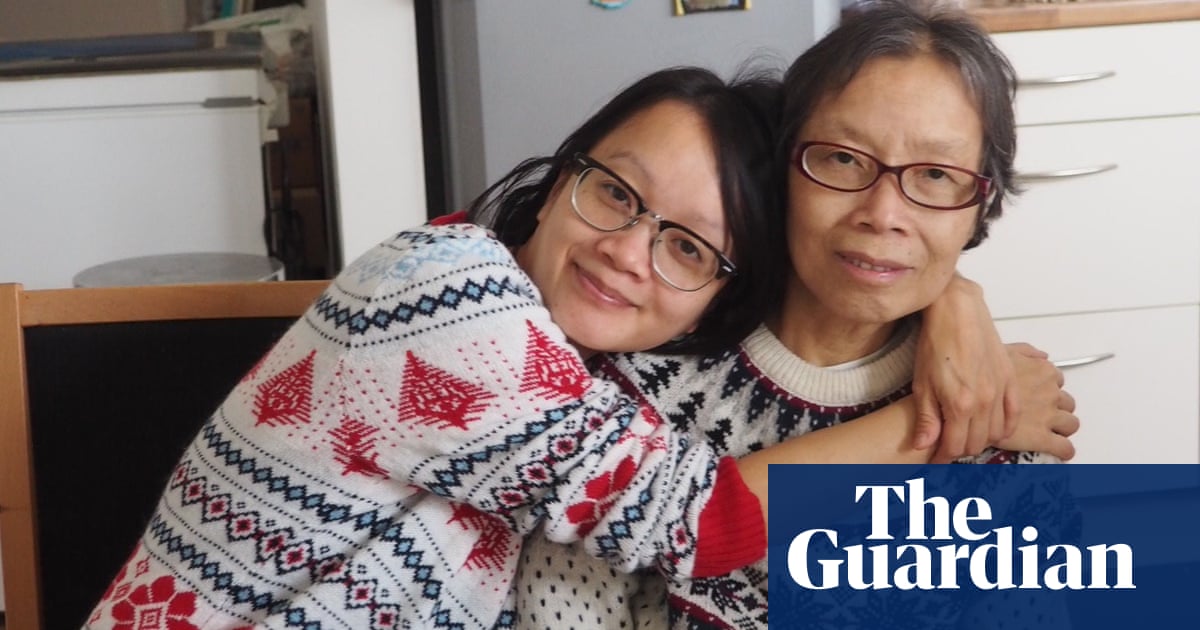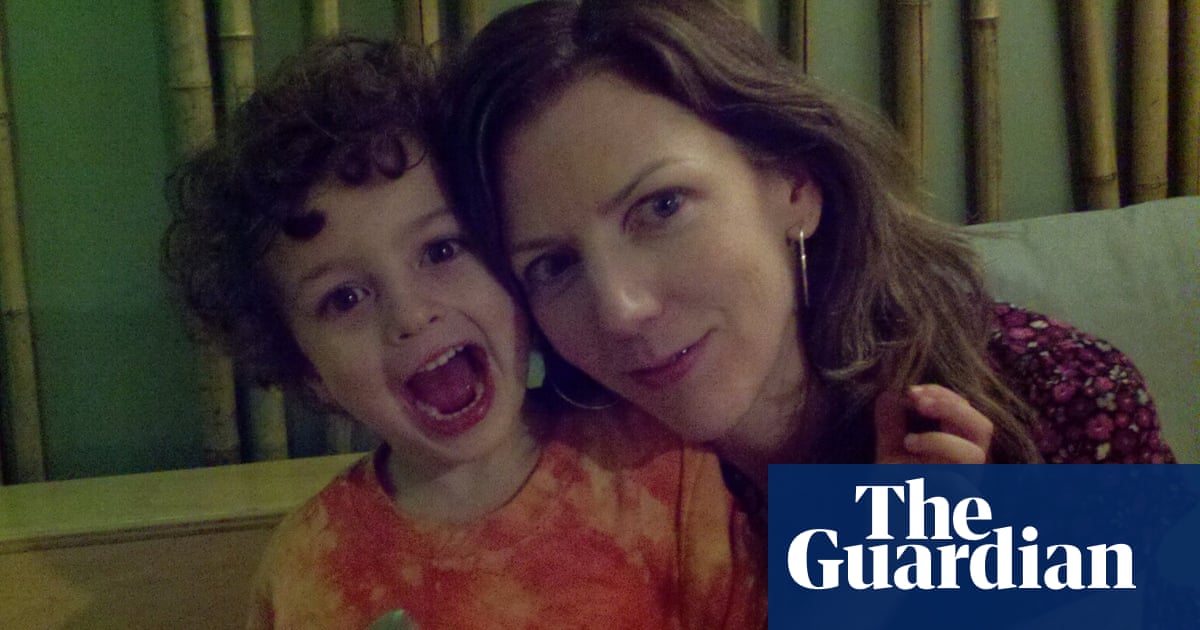
It was like a beehive. A buzzing mass of 800 guests gathered around the queen, their larder of honey replaced by shrimp croquettes and caviar. It was 32 years ago when my mother, Ann Russell Miller, threw a combination 61st birthday and bon voyage party in the grand ballroom of a San Francisco hotel. Above her floated a balloon, tied to her wrist and emblazoned with the phrase: “Here I am.” She manoeuvred about, dressed elegantly in sparkling black. Her makeup was flawlessly applied, her hair expertly coiffed, her shoes chosen from hundreds of exquisite pairs. But this was her last formal outfit. She would never wear makeup again. The following day her hair would be shorn close to her scalp and forever hidden under a veil. For the next three decades she would wear the simple brown habit, with sandals or work shoes, befitting her new life as a cloistered nun.
As the orchestra played the familiar strains of Happy Birthday, she could doubtless hear the echoes of birthdays past. The song played in Oregon and California during her youth. It was sung by her classmates at the Spence School on East 91st Street in New York. Her 21st birthday was spent newly married and five months pregnant. She would be in that condition more than 90 months of her life. By her 41st birthday she had completed her collection of five daughters and five sons. My father, who died when my mother was 55, was fond of saying that he had wanted 12 children and my mother wanted 10, so they compromised and had 10. She talked nearly nonstop on the telephone and in person. She had the exceedingly irritating ability to nap almost at will and wake up in such a manner as to make one doubt that she had been asleep at all. With charm and eccentricities to spare, she fairly skated through life with the benighted ease of the fabulously wealthy.
Being one of the six of her children born in July, it didn’t require Holmesian skills to determine that nine months before July is October – my mother’s birthday month. Was my father unimaginative when it came to gift-giving? Not that I minded terribly sharing my birthday song with two of my sisters born years apart on the same date. “Happy Birthday dear Janet and Leslie and Maaaaark.” Yeah. I think this is one reason I married a twin. Unspoken shared torment.
Long before her 61st birthday extravaganza, my mother’s life was glittering. Her father was a railroad man who had risen from timekeeper to chief executive. He had been on the covers of Time and Forbes magazines. She had married well. Her husband’s parents were the chief executive of California’s largest utility and the co-heiress of Folgers Coffee. My parents’ home was a nine-bedroom, 10-bathroom mansion in Pacific Heights in San Francisco. It was afterwards owned by the lead guitarist of Metallica. While life has numerous ups and downs, I hope he enjoys riding in the house elevator as much as I did.
In the months preceding her farewell bash, she systematically divested herself of every worldly possession. She sold her enormous house and disposed of each and every personal item. To friends she gave away her collection of dozens of specially made bamboo parasols that were crafted using Hermès scarves she selected. The contents of her cedar-lined closets, chock-a-block full of shoes, were parcelled out in multiple scenes reminiscent of Cinderella’s stepsisters futilely cramming their toes into sculpted glass. Handbags, photographs, jewellery and all the myriad accoutrements of her life were donated, gifted and otherwise shed. Of course, she would be leaving behind her children as well as her grandchildren.
The woman who had travelled to every continent except Antarctica had one last flight to take, to reach the convent near Chicago, Illinois (from San Francisco that is as far as London to Moscow, plus another 300 miles). She would enter the monastery grounds from which she would never leave, save medical emergency. Her life there would be ascetic, austere and contemplative: a worker bee. She would be living in silence for more than 20 hours a day. Although she would be permitted to have visitors, a set of double metal grilles would ensure that no touching or hugging could take place. At her funeral in June, the casket was a simple wooden box interred on a small rise in the garden, hidden behind high walls and gates.
At her San Francisco farewell party she winked at those who declared that she would be back in less than a year. She tried to disarm with humour those who knew better. For those of us who were her children, this evening did not come as a surprise. Two years earlier she had taken, first her daughters, then her sons, to a pair of luncheons. She asked us each what we thought we would be doing in our lives at age 60. I was 22 and gave an answer I can hardly recall. I remember her answer, however. She intended to become a nun in two years. A Carmelite nun. A cloistered nun. A vow of poverty, chastity and obedience nun. She felt she had devoted 30 years to herself, 30 to her children and the last 30 would be for God.
An uncomfortable silence was broken by someone ordering a whiskey. There was a full spectrum of reactions. Some were thrilled for her while saddened at the eventual loss. One remarked that it would be like having two deceased parents. One asked: “Why wait?” My own thoughts were nuances of all of those. I had no doubt that she would go through with it. I did not entirely believe that the nuns in the convent would keep her – that she would pass through the five-year novitiate period without an inevitable Maria from The Sound of Music expulsion. I was wrong.
Thirty years. She knew she would probably live that long. Her mother died at 99. Her grandmothers at 93 and 95. When she died at 92, she was kind of an underachiever in that regard. Her decision to become a nun was not some whim to live out her final few years in quiet reflection and prayer. It would be a decades-long commitment. She used to joke – we all thought it was joke – that when her children were grown, she would become a Carmelite nun and my father would become a Trappist monk and, as long as they allowed conjugal visits, she would be quite content.
Among the guests at her final party was a suitor who had been stung. The man was a lifelong friend and remained exceptionally fond of my mother. As he sipped from his continuously charged champagne flute, his thoughts must have returned to the enormous yacht he had chartered 18 months before. He invited my mother, and her inevitable entourage, to join him for two weeks cruising the coasts of the Adriatic and Aegean seas. On the final night of the voyage, he invited all those aboard to the aft deck at sunset. I can almost hear the James Horner score reaching a crescendo as he knelt and offered his hand in marriage. She dismissed the idea with the words: “Oh, don’t be silly.”
Yet she did marry again. My father’s death left a huge hole in her life. But when a nun takes her final vows, she is wed to God. She becomes a bride of Christ. My father was 2m tall and an imposing presence. His conviction in always doing the right thing was conspicuous. But listening to the final vows of my mother, I realised that my new stepdad was Jesus. So yeah, lots of family pressure there.
I get asked a lot of questions as the child of a nun. My least favourite is some version of: “Was she religious?” Um, well, yes. I don’t know of too many non-religious people who lock themselves up in a convent. She began going to church every day in 1971. Whenever she travelled, she brought along a priest so that she could attend daily mass wherever she was. White-water rafting in Idaho? Bring a paddle for the priest. Scuba-diving in a dormant Hawaiian volcano? Save a helicopter seat for the priest. I needn’t tell you that she brought along a priest on the marriage-proposal yacht. At least her suitor saved the cost of the matrimonial clergy stipend.
The question I never get asked is: “Was she a good driver?” Because my mother was a luridly bad driver. She perennially drove at breakneck speeds while distractedly chatting amiably from the driver’s seat as breezily as if mingling at a cocktail party. She once drove a newly hired nanny from our family farm exactly 1.8 miles down a winding, narrow country road with a precipitous drop-off to one side. At the stop sign, the woman got out of the car, announced she was not proceeding one more inch in that death-mobile, and quit her job on the spot. I instantly liked her. I also never saw her again. Ann Miller was quite bewildered at criticisms of her driving. She defended herself to my father by pointing out that she had never been in an accident. He replied: “True. You just cause them.”
I spent many hours in the car with her in my youth. On any trip lasting more than 15 minutes, you were almost certainly going to be reciting the rosary. Great credit and admiration were discreetly bestowed upon fellow siblings who could speed through Hail Marys with the lightning cadence of a livestock auctioneer. At the end of this forced series of prayers, she would play music. Among her favourites was Paint Your Wagon, a wholesome tale of a woman with two husbands who spent an inordinate amount of time being drunk and thieving when they were not engaged in kidnapping sex-workers at gunpoint for their Gold Rush-era town. She loved that one. We knew all the words by heart.
I wonder if she missed driving those last 31 years. If she missed talking to all the friends she spent so much time talking to on the outside. If she missed seeing a fresh vista or a wall that differed from the rough, beige masonry of each room in the convent. Aside from her final vows, I only saw her twice again. Our relationship had become estranged before the nun portion of her life, due to a relationship of which she did not approve. When I last saw her, it wasn’t like visiting a mother. It was like seeing a great-aunt who didn’t really know me. Others of my siblings have differing feelings and some found their visits rewarding.
The nuns in the convent alerted us to her decline last summer and let us know that the end of her life was a matter of days away. We were provided a telephone number to call and told they would hold the receiver up to her ear, but that she had serious difficulty talking. After some internal debate, I called the number. A nun dutifully held the phone to her ear. I said nothing. I just sang I Was Born Under a Wand’rin Star from Paint Your Wagon and quietly hung up the phone.












